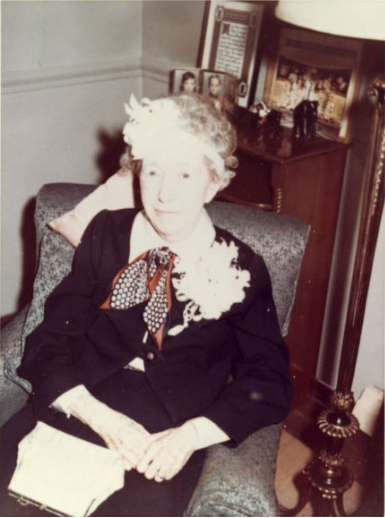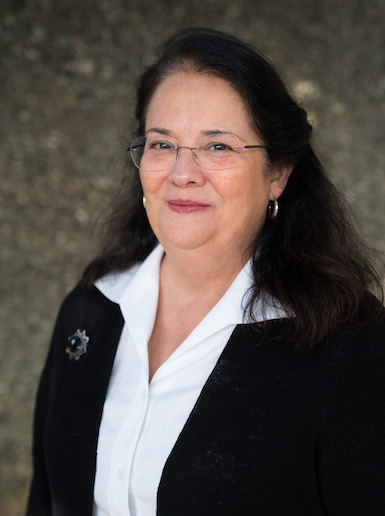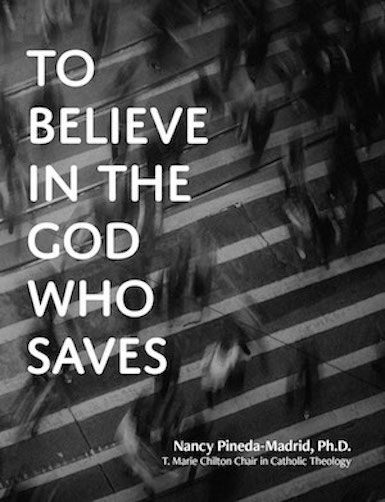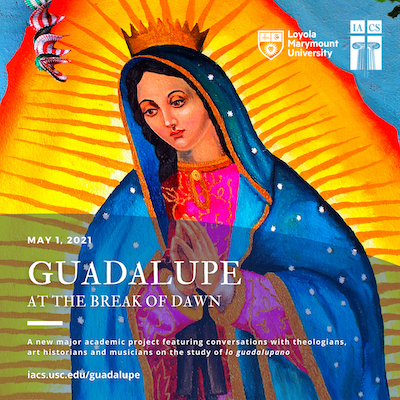
In 1972, Loyola Marymount University received the largest single bequest in the school's history at the time, an unrestricted $3 million gift from the late Mrs. T Marie Chilton. A philanthropist and antiquarian book collector, Chilton's interest in LMU came when the Von der Ahe Library opened in 1959. In her lifetime, she not only loaned the library her collection of 400 rare books (ultimately offering them as gifts to LMU) but also financed the vault that housed them.
In 1999, LMU used the realized gift from Chilton to establish the T. Marie Chilton Chair in Catholic Theology. That same year, Thomas P. Rausch, S.J., was named the first chairholder, a title and position he held until his retirement in 2017. The current chair, as of fall 2019, is Nancy Pineda-Madrid, Ph.D.
Those appointed as Chilton Chairs have achieved widespread distinction for their work in Catholic Theology. They symbolize and express LMU's commitment to scholarly excellence and elevate the university's national and international visibility in their field. Not only do they demonstrate superior teaching and mentoring skills at the graduate and undergraduate levels, they also promote the academic growth and professional development of their fellow faculty. Through the advancement of programmatic research, interreligious dialogue, and scholarly activities in Catholic theology, they strengthen the Theological Studies Department and add value to the entire LMU community.
Meet the Current Chair

Nancy Pineda-Madrid was born in Albuquerque, NM, and is of Mexican ancestry on both sides of her family. She spent her formative years living in the El Paso/Juarez border region, where early on in life, she became acutely aware of the impact of sexist practices, of unjust economics, and of prejudice defined along racial/ethnic lines. In her early twenties, she spent a year living in Palomas, Chihuahua, Mexico, working in various ministries, and then went on to work in full-time ministry at the Archdiocese of Seattle, first as Multicultural Ministries Coordinator, and later as the Director of Planning (Pastoral). In these roles she realized the possibilities that Roman Catholic theology offered in response to the world’s injustices, and held latent to illuminate the U.S. Latino/a faith experience.
Pineda-Madrid’s scholarly work is published in five languages and includes a monograph, two co-edited volumes, over 32 scholarly articles and book chapters, and numerous book reviews and pastoral essays. Theologically, she is informed by Feminist, Womanist, and Latina theology, as well as Latin American liberation theology and influential figures from the Catholic tradition (Anselm, Augustine, Irenaeus, etc). She also employs the work of social scientists, Chicana/o/feminist theorists, and the American Pragmatist tradition. Her own work is oriented around three major themes (violence against women, salvation, and the Borderlands) and seeks to address two central questions: (1) How may we offer an intellectually credible and socially viable account of salvation in our time in the face of escalating, systematic violence against women along our southern border and around the world? And (2) How can we make clear the theological imperative in the face of such violence?
Pineda-Madrid earned her Ph.D. in Systematic and Philosophical Theology at the Graduate Theological Union. Before coming to LMU, she was an Associate Professor of Theology and U.S. Latina/o Ministry at Boston College. She is a former president of the Academy of Catholic Hispanic Theologians of the United States (ACHTUS) and a former vice president of the International Network of Societies of Catholic Theology (INSeCT).
Learn more about Nancy Pineda-Madrid and her 2019 appointment as the Chilton Chair on the LMU Newsroom.
Past Events

"To Believe in the God Who Saves"
Tuesday, Feb. 2, 2021 | 4:30 - 5:30 p.m.
A lecture and installation celebration with Nancy Pineda-Madrid, Ph.D., the newly appointed Chilton Chair in Catholic Theology
The overarching theological question today is the question of salvation, or, said another way, what does it mean to believe in the God who saves? In one way or another, this enduring theological question has haunted every century of this two thousand year tradition. Even so, over the historical sweep of this lengthy tradition, there are often eras that have seen the foregrounding of particular dimensions of salvation and the receding of other dimensions. Over time, the pattern of foregrounding can, and often does, lead to a distortion. Such a distortion is now present in our contemporary understanding of salvation. While the best of the Catholic tradition claims that salvation is at once personal/individual and social, our time tends to understand salvation in narrowly individual terms. It is a matter of urgency that theologians re-imagine salvation by foregrounding its social dimension thereby challenging the all but exclusive, narrowly individual understanding.

Guadalupe - At the Break of Dawn
Saturday, May 1, 2021
The Chilton Chair in Catholic Theology is proud to present a three-part series reexamining lo guadalupano – the world of Nuestra Señora de Guadalupe.
Guadalupe – At the Break of Dawn is a new major academic project featuring conversations with theologians, historians, and musicians on the study of lo guadalupano "the world of Guadalupe."
The project is a collaboration between LMU's T. Marie Chilton Chair in Catholic Theology and the Institute for Advanced Catholic Studies at USC.
On May 1, 2021 the project will launched with a series of webinars featuring participants from across the U.S. who explored lo guadalupano from various perspectives.